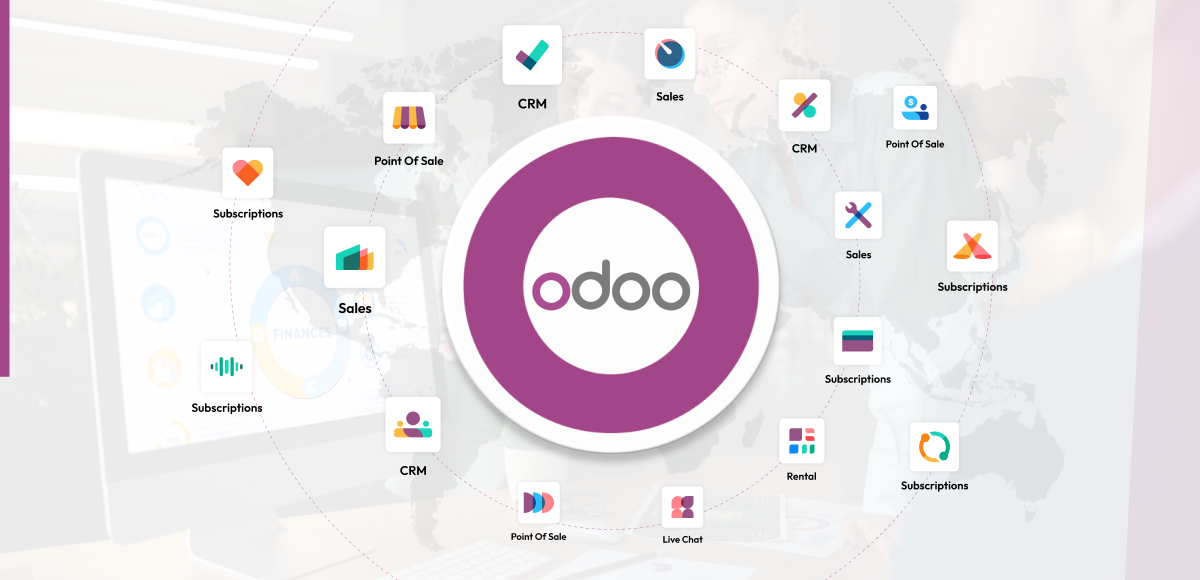The Evolution of ERP Systems
Enterprise Resource Planning (ERP) systems have come a long way from the rigid, monolithic structures of the past. Traditional ERP solutions were once large, complex, and costly, demanding long implementation cycles and often forcing businesses to adapt to the system, rather than the other way around. But as business needs have grown more diverse and dynamic, ERP solutions have evolved.
Modular ERP systems—flexible, scalable, and adaptable solutions that allow companies to select only the functionalities they need. Instead of being locked into a one-size-fits-all platform, businesses can now build their ERP system module by module, scaling as they grow and customising as their operations evolve.
Why Modularity Matters
Modular ERP systems are structured around independent yet interconnected components. Each module handles a specific business function—sales, inventory, finance, human resources, customer relationship management (CRM), project management, and so on. This allows businesses to:
- Start small and scale up as needed
- Avoid unnecessary costs by only paying for the features they use
- Implement changes gradually, reducing the learning curve
- Tailor the system to their exact workflows
Odoo: The Gold Standard in Modular ERP
Odoo is a leading open-source ERP system known for its highly modular architecture. With over 50 core applications and thousands of community-developed modules, Odoo offers unparalleled flexibility and depth. Whether you’re running a retail chain, a manufacturing plant, a service-based company, or an e-commerce store, Odoo has a module for your needs.
Key Benefits of Odoo’s Modular Approach

- Customisable Implementation Based on Business Priorities
One of the greatest advantages of Odoo’s modular ERP is its ability to align precisely with your business strategy. Instead of overwhelming your team with an all-in-one rollout, you can start by implementing the most mission-critical modules, such as Sales, Inventory, or Accounting, and expand later. This makes Odoo ideal for businesses at different stages of growth, allowing you to focus on solving immediate pain points before scaling into more advanced functionalities. - Seamless Native Integration Across Modules
Every Odoo module is designed to work in perfect sync with the others. For instance, when a Sales Order is created, it automatically triggers actions in Inventory, Invoicing, and CRM; no manual input or third-party connectors needed. This ensures a unified flow of information across departments, eliminates silos, and reduces the risk of data duplication or human error. - Cost Efficiency and Budget Control
With Odoo, you only pay for the modules you need, when you need them. This allows businesses, especially SMEs and startups, to avoid hefty licensing fees common with legacy ERP providers. You invest incrementally, which makes budgeting for digital transformation more practical and sustainable. Plus, the open-source nature of Odoo gives you the freedom to explore community-developed modules that are often free or lower cost. - Faster and Smarter Deployment
Implementing an ERP system is traditionally time-consuming. But Odoo’s modular design changes the game. You can deploy selected modules within weeks, not months, and get tangible results almost immediately. This phased approach also minimises disruption to ongoing operations and allows your teams to learn the system progressively, ensuring higher adoption and fewer bottlenecks. - Greater Flexibility and Scalability
Business environments are not static; markets shift, regulations evolve, and consumer demands fluctuate. Odoo’s modular ERP is built to adapt. Whether you're opening a new branch, expanding into e-commerce, or introducing a new product line, you can add the relevant modules without overhauling your entire system. It's ERP that grows with you. - Industry-Specific Solutions at Your Fingertips
Odoo’s modular design isn’t just about flexibility, it’s also about precision. With dedicated modules for manufacturing, healthcare, education, logistics, retail, professional services, and more, you get tools built for your sector. Each module can be fine-tuned to meet industry-specific compliance, workflows, and reporting standards. - Reduced IT Complexity and Dependency
Traditional ERP systems often require extensive customization, external tools, and a high-maintenance IT infrastructure. Odoo eliminates that complexity by offering a unified suite of modules that run on a single platform. This significantly reduces your IT footprint and simplifies system administration, freeing your team to focus on strategic goals rather than system upkeep.
Real-World Use Case: Growing with Odoo
Imagine a small retail company starting with just Odoo’s Sales and Inventory modules. As the business grows, they integrate the Accounting and CRM modules. Eventually, they adopt E-commerce and Marketing modules to expand their online presence. Each step is guided by business growth, not forced by system limitations—an approach that maximises ROI and operational efficiency.
The erpSOFTapp Advantage
At erpSOFTapp, we specialise in helping businesses leverage the full potential of Odoo’s modular architecture. Our consultants work closely with clients to:
- Identify which modules best fit their immediate and future needs
- Develop a phased implementation strategy
- Customise and configure modules for industry-specific workflows
- Provide training and support for long-term success
Whether you're just starting your digital transformation journey or looking to scale with smarter tools, Odoo and erpSOFTapp offer a roadmap to success.
Final Thoughts
The days of bloated, inflexible ERP systems are over. Today’s businesses demand agility, customisation, and value, and Odoo delivers all three through its modular approach. With the right strategy and a trusted implementation partner like erpSOFTapp, your business can unlock new levels of efficiency and scalability.
Ready to build your ERP system your way?
Contact erpSOFTapp today to discover how Odoo’s modular ERP can transform your operations, one smart module at a time.
The Rise of Modular ERP Systems: How Odoo Supports Business Agility